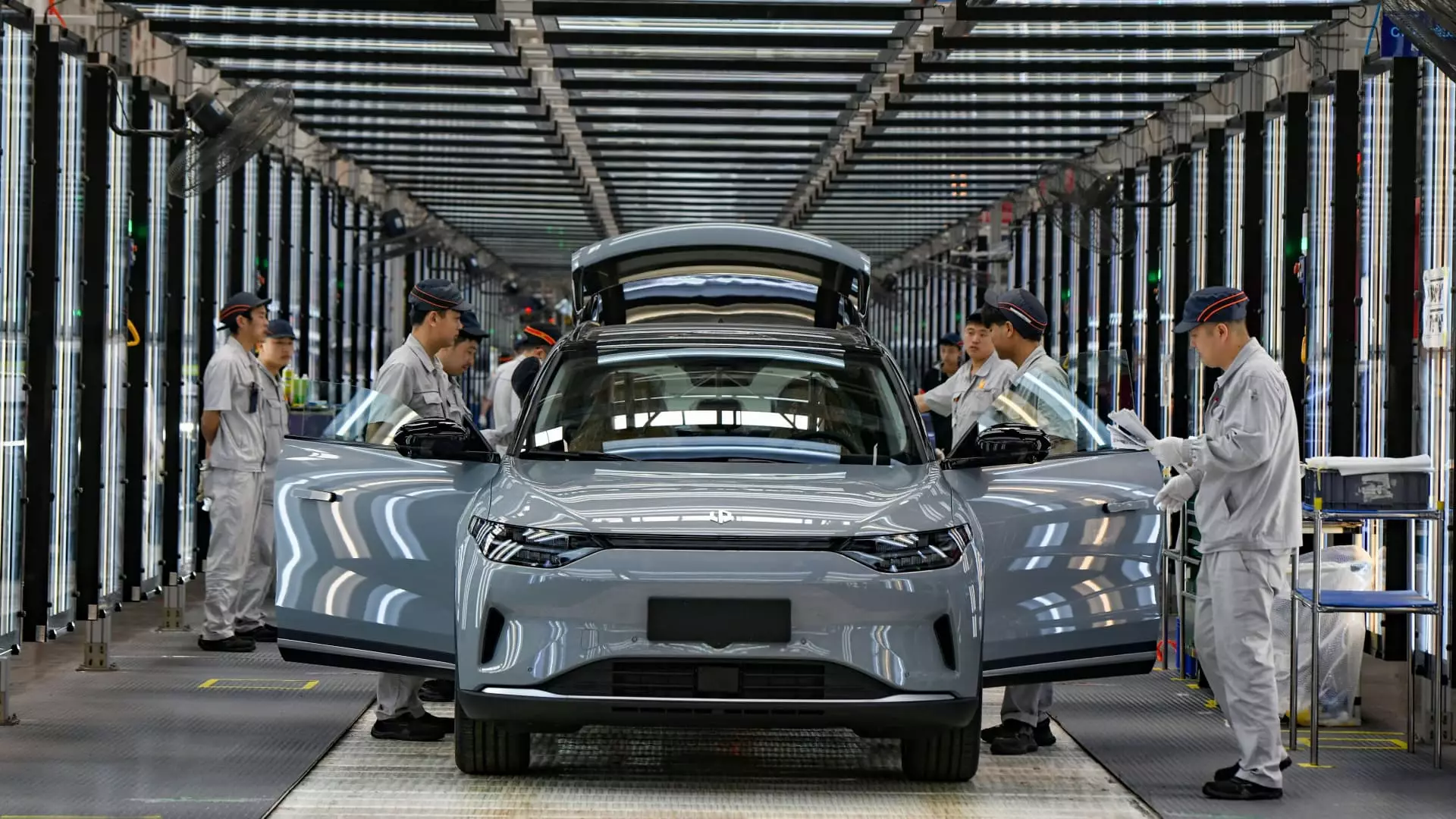In a significant shift in trade policy, U.S. President Donald Trump introduced substantial tariffs on various imported goods, particularly from Canada, Mexico, and China. Signed on a Saturday, these executive orders heralded a 25% tariff on a range of products from Mexico and Canada, in addition to a 10% duty placed on energy products from Canada and goods from China, set to commence the following Tuesday. This development is poised to disrupt the delicate balance of international trade, provoking immediate reactions from markets and governments alike.
Trump justified these tariffs by emphasizing concerns over illegal immigration and drug trafficking, suggesting that the implications for American citizens could be considerable. His language indicates a deep commitment to using trade policy as a tool for addressing broader societal issues—a sign of how intertwined economic policy has become with national security concerns in his administration.
The implications of these tariffs were swiftly felt on Wall Street, particularly within the automotive sector, where shares of major companies experienced sharp declines. Pre-market trades showed General Motors down by approximately 6.6% and Ford treading similarly with a 4% fall. International automakers weren’t spared either; notable European and Asian manufacturers like Valeo, Stellantis, Volkswagen, Toyota, and Honda saw their shares tumble significantly. This reaction from the stock market reflects investor anxiety regarding how retaliatory measures from Canada and Mexico could further escalate tensions between countries and complicate an already fragile global supply chain.
By imposing these tariffs, the Trump administration arguably sowed the seeds of potential trade war. The automotive industry, heavily reliant on cross-border manufacturing and an intricate web of supply chains, is facing the brunt of this tumultuous environment. Analysts are concerned about cascading effects as these tariffs might not only hurt U.S. manufacturers but could also lead to a disjointed supply chain that will increase production costs globally.
With Canada and Mexico signaling possible retaliatory actions against U.S. imports, the risk of an escalated trade conflict looms large. Reports indicate that these nations might impose counter-tariffs aimed at U.S. goods, potentially igniting a tit-for-tat scenario. The impact on specific sectors could be severe, especially considering that automotive trade between the U.S. and the European Union has historically formed the backbone of the auto market, creating a precarious situation for both sides.
The European Union has committed to responding proportionately to any imposed duties, which could lead to increased prices for European cars in the U.S. market. This scenario raises concerns about the economic ripple effects resulting from such tariff policies. Companies like Volkswagen, Mercedes-Benz, and BMW, which are already struggling due to sluggish demand in critical markets like China, may find themselves facing additional hardships.
Industry Perspectives on Free Trade
Major automotive players have been vocal about their stance on tariffs, with expressed concerns about the negative impact on innovation and economic stability. A spokesperson from BMW highlighted the importance of free trade as a primary driver of growth, emphasizing that tariffs could trigger a detrimental downward spiral in market dynamics. Similarly, Volkswagen conveyed a commitment to promoting open markets, arguing that stable trade relations are crucial for maintaining a competitive economy.
The automotive industry’s response underscores a broader apprehension about how protectionist policies can stifle growth prospects and innovation. As the trade landscape continues to evolve, stakeholders in the automotive sector must navigate these turbulent waters carefully, advocating for dialogue and resolution to avoid further escalation of economic conflict.
As President Trump’s tariffs begin to unfold, the ramifications for the auto industry are becoming increasingly clear. The potential for a trade conflict poses significant risks, not only to companies but also to consumers who might face higher prices. While the intention behind these tariffs may be to protect American interests, it raises questions about the sustainability and wisdom of such an approach in an interconnected global economy. The coming weeks will be crucial as stakeholders assess the unfolding scenario, advocating for negotiation and collaboration to mitigate the adverse effects of this shift in trade policy.


Leave a Reply